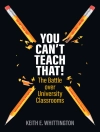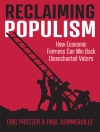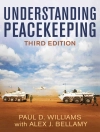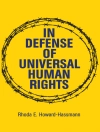Nuclear energy, stem cell technology, GMOs: the more science advances, the more society seems to resist. But are we really watching a death struggle between opposing forces, as so many would have it? Can today’s complex technical policy decisions coincide with the needs of a participatory democracy? Are the two sides even equipped to talk to each other?
Beyond Technocracy: Science, Politics and Citizens answers these questions with clarity and vision. Drawing upon a broad range of data and events from the United States and Europe, and noting the blurring of the expert/lay divide in the knowledge base, the book argues that these conflicts should not be dismissed as episodic, or the outbursts of irrationality and ignorance, but recognized as a critical opportunity to discuss the future in which we want to live. Massimiano Bucchi’s analysis covers the complex realities of post-academic science as he:
- Explores the widely debated theme of science and democracy across a broad range of technological controversies.
- Overviews issues raised by the current relationship among scientists, policymakers, business interests, and the public.
- Dispels stereotypes of the detached scientific community versus the uninformed general public.
- Examines the role of the media in framing scientific debate.
- Addresses the question of how to move beyond technocracy to a more fruitful collaboration between scientists and citizens.
- Offers a bold vision for a future in which the scientific and public spheres regard each other as partners working toward a shared purpose.
Beyond Technocracy: Science, Politics and Citizens has great value as a postgraduate text for courses in technology and society, political science, and science policy. It will also find an interested audienceamong scientists, policymakers, managers in the technological sector, and concerned lay readers.
Tabela de Conteúdo
Introduction
Science-Society as a ‘Clash of Civilizations?’
The introduction briefly sets the background of the book. Increasing conflicts regarding science and technology issues cannot be dismissed as a sort of ‘clash of civilizations’ between a science striving to advance and a society resisting to it. Such conflicts are indeed a dramatic symptom but of a different, and perhaps more profound, challenge: how to face the increasing number of issues on matters involving science and technology with the needs of democratic participation?
Chapter One
The Technocratic Response: All Power to the Experts (with the Blessing of Well-Educated Citizens)
The shaking pillars of the traditional, technocracy response to the challenges of technoscience (delegating decision to the experts, with the blessing of citizens appropriately ‘educated’ through multiplying communicative efforts to promote science) are highlighted in this chapter. Common stereotypes – e.g. scientific illiteracy on the part of the public being largely responsible for the decisional impasse on science related matters – are challenged on the basis of international empirical data and practical cases. Delegating decisions to the experts appears no longer viable due to factors like the declining perception of expertise as neutral and the experts as a homogeneous and consistent community; the role of the media in scrutinizing expert sources and policy decisions; emerging demands to be involved in such decisions on the part of citizens.
Chapter Two
Einstein has left the building: coming to terms with post-academic science
Technoscience public debates and conflicts take place within the context of a profound change in the conditions under which knowledge is produced, validated and disseminated; the differences between ‘big science’ in the post-war era and contemporarypost-academic science are highlighted (e.g. connection with business priorities, emerging of knowledge property issues, shift of focus from the physical to the biomedical sciences, mediatization, global dimension), together with their relations with broader forces shaping society; implications for the role of science in society are also widely discussed.
Chapter Three
Citizens in the laboratory, Scientists in the Streets
The inadequacy of a vision of ‘science vs. society as a clash of civilizations’ and of a technocratic solution to dilemmas and conflicts appears inadequate in the face of the increasing trespassing of the expert/lay divide in knowledge production. Multiple examples are given of knowledge co-production forms and arenas: patient associations shaping the priorities and very content of biomedical research; expert authorities being negotiated in courts; protest movements incorporating scientific knowledge to campaign on issues related to science and technology; users participating in innovation and technology design processes. The chapter also documents some of the most recent and significant experiences worldwide, aimed at institutionalising citizen participation and balancing expert advice with the views of stakeholders and other social actors. Finally, it is shown how the presence of citizens within research laboratories is more and more paralleled by the mobilization of researchers in the public arena – when they protest against budget cuts or against state regulation of certain research fields, or simply advocate greater public concern.
Chapter Four
Choosing the World We Want: Democracy in the Age of Technoscience
How to move beyond the illusions of technocracy? (Bio)Ethical self regulation (of both users and producers of
technoscience) appears both inadequate to solve the dilemmas and conflicts facing us. The final chapter argues that thechallenges of contemporary technoscience requires us to rethink not just the role of science in our societies, but democracy itself as a genuine confrontation among different visions regarding our future . If science has become too important to be left to scientists only, democracy cannot live without technoscience expertise. The alternative to technocracy is not the negation of research and innovation, but a democracy in which expertise is a resource, rather than an alibi to escape difficult political decisions; a democracy in which political uncertainty is dealt with openly and in conjunction with technical uncertainty. But to do this, we need to abandon the traditional idea of a ‘zero sum’ relationship between science and society, in which every concession to democracy is mistakenly perceived as diminishing and contaminating the role of expert knowledge.
References
Sobre o autor
Massimiano Bucchi (Ph.D. Social and Political Science, European University Institute, 1997) is Associate Professor of Sociology of Science at the University of Trento, Italy. He has published five books, including Science and the media (London and New York, Routledge, 1998) and Science in society. An Introduction to Social Studies of Science (London and New York, Routledge, 2004) and several essays in international journals such as Nature, Science, History and Philosophy of the Life Sciences, New Genetics and Society, and Public Understanding of Science. He is a member of the International Scientific Committee for Public Communication of Science and Technology (PCST), and has served as advisor and evaluator for several research and policy bodies, including the Royal Society, US National Science Foundation and the European Commission. He has carried out research and given seminars at several international institutions, such as the Royal Society, Universität Bielefeld, ETH Zurich, London School of Economics, University of California Berkeley, Royal Swedish Academy of Sciences, University of Tokyo, Museu da Vida Rio de Janeiro, Austrian Academy of the Sciences and received several recognitions for his work, including the Mullins Prize awarded by the Society for Social Studies of Science (1997) and the Lelli prize for the best dissertation in sociology (1998).












